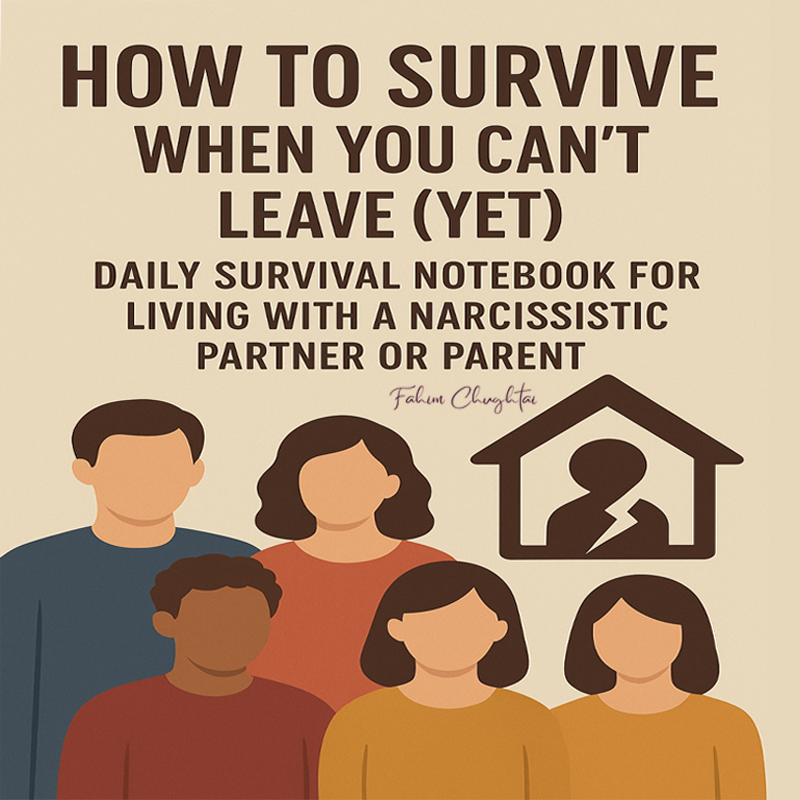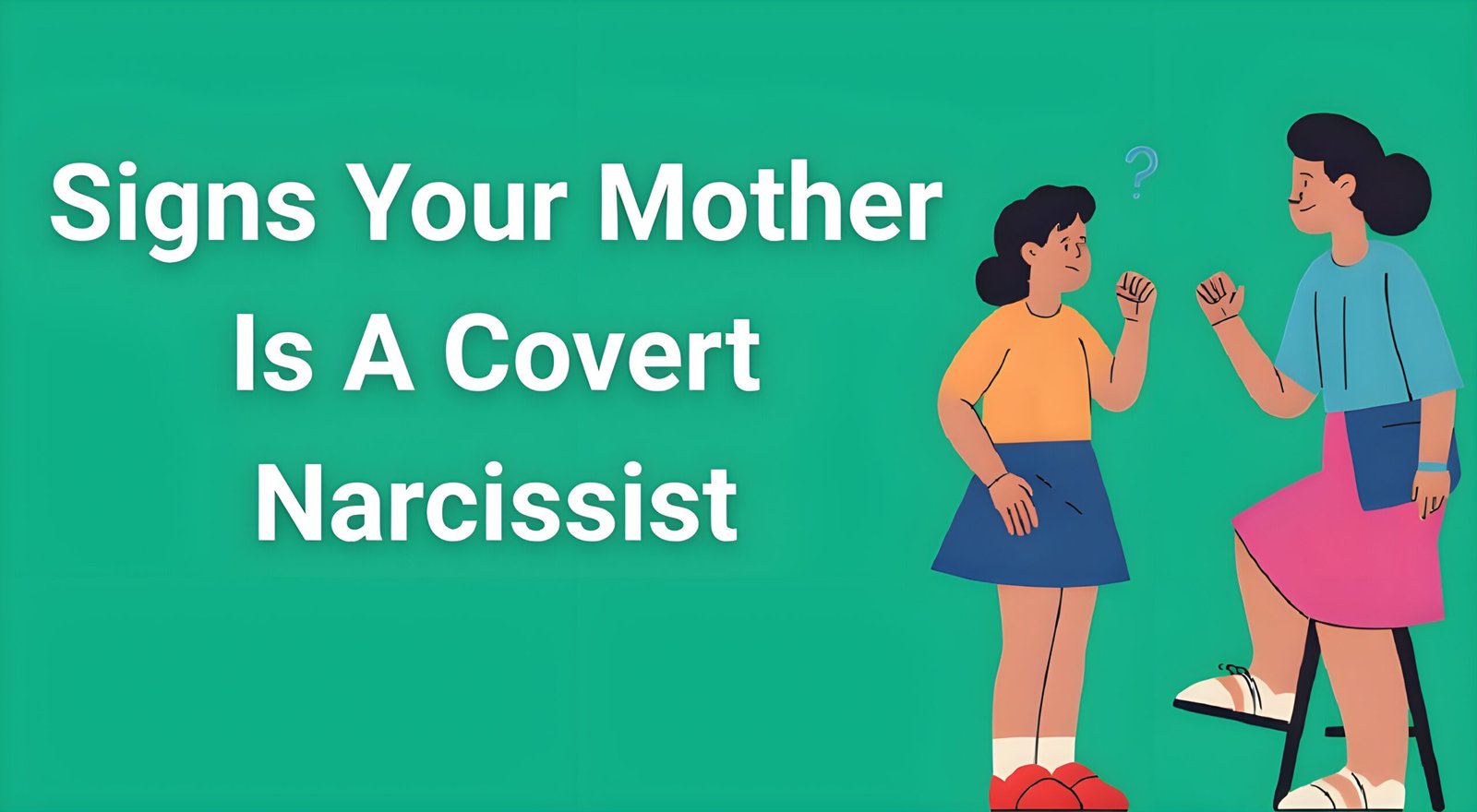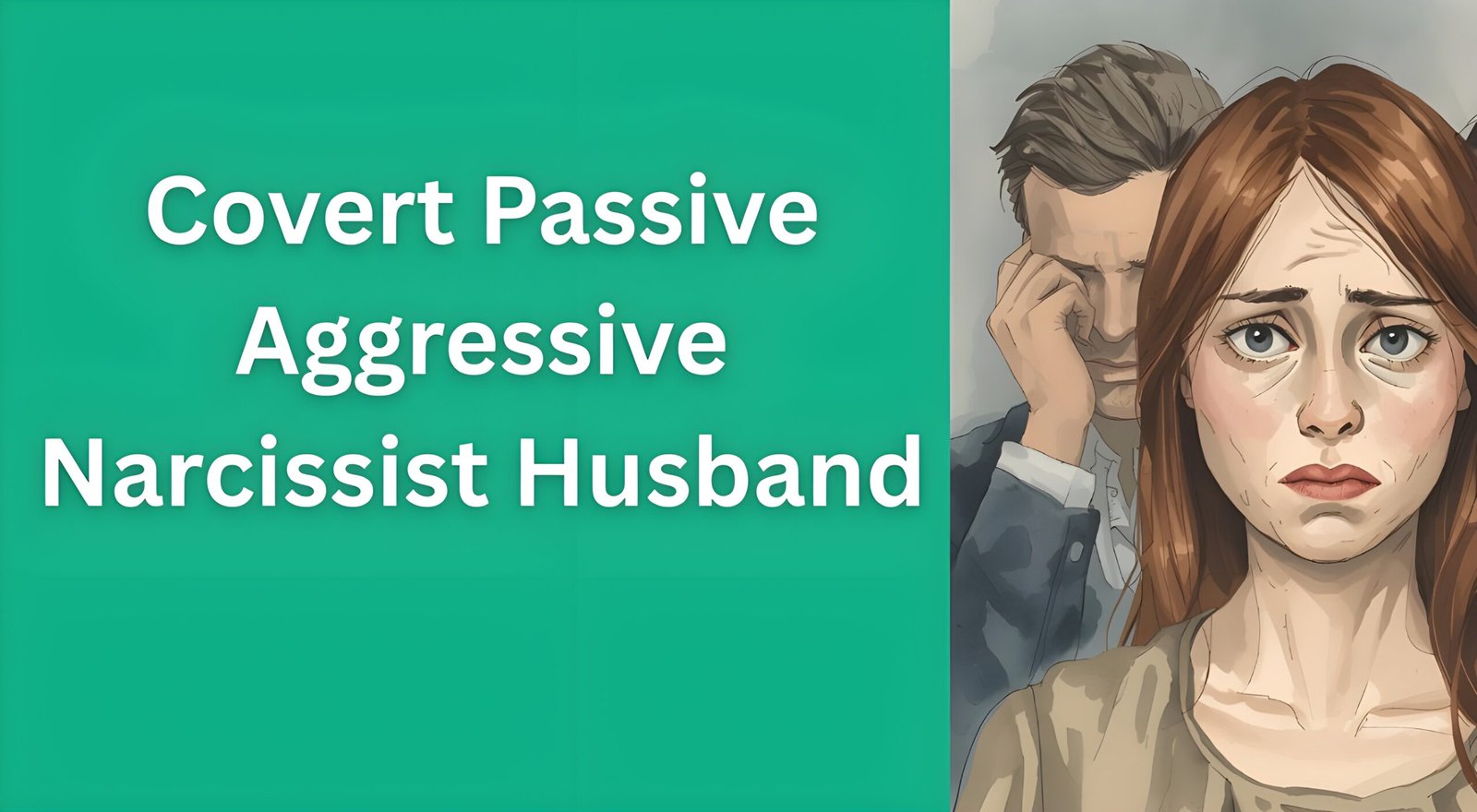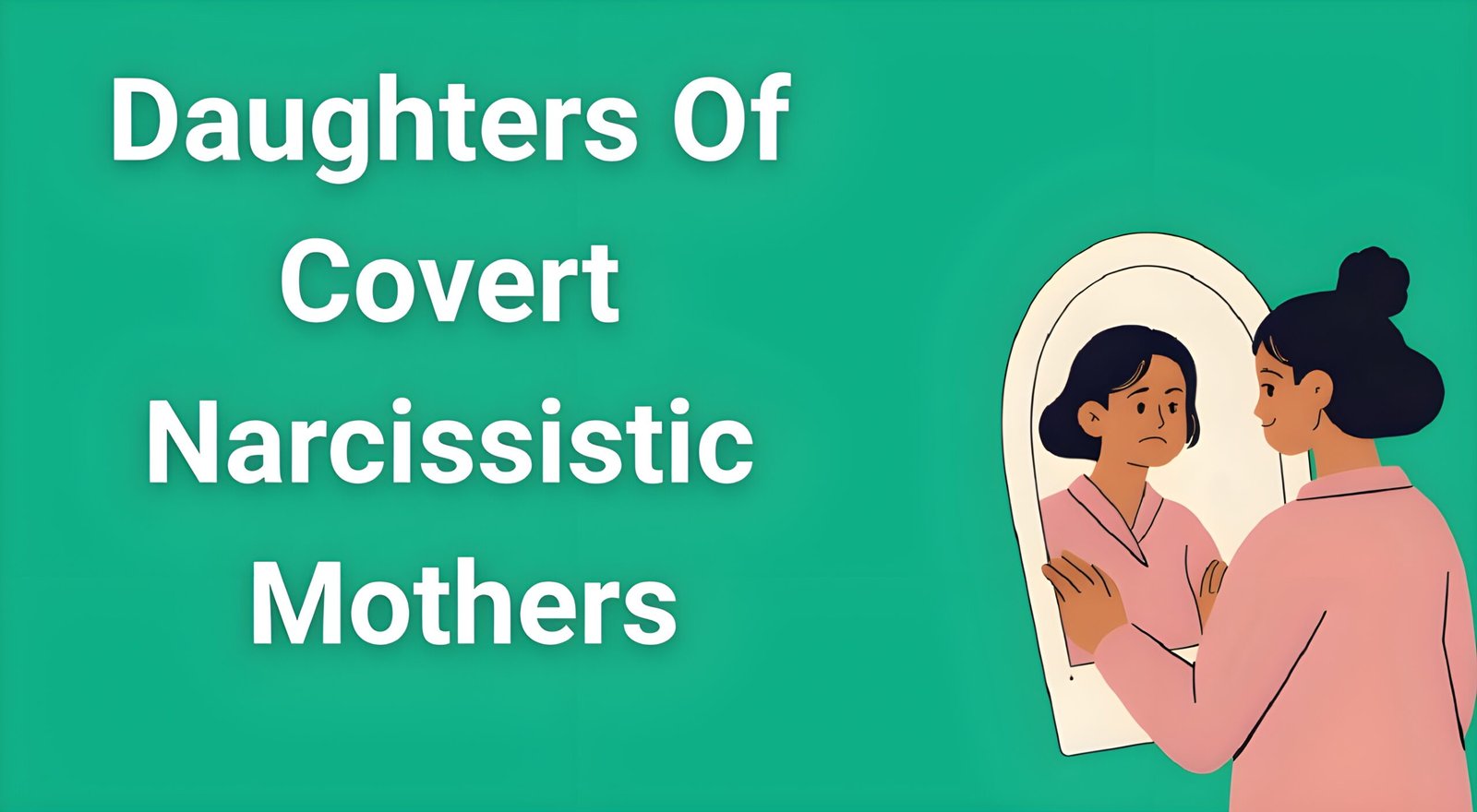That knot in your stomach when you see her name pop up on your phone. The way you rehearse conversations in your head before calling her. The constant feeling that you’re walking on eggshells, never quite sure what will set her off—yet everyone else thinks she’s absolutely wonderful.
- What Makes Covert Narcissism So Hard to Spot?
- 15 Clear Signs Your Mother is a Covert Narcissist
- The Hidden Impact on Adult Children
- Breaking Free: Your Path to Healing
- Protecting Your Own Children
- When Others Don’t Understand
- Moving Forward with Strength
- Frequently Asked Questions
- Conclusion: You’re Not Crazy, and Your Healing Matters
If these feelings resonate with you, you’re not imagining things. The signs your mother is a covert narcissist are often so subtle that even you might question whether what you’re experiencing is real. Unlike the obvious, dramatic narcissist we see in movies, a covert narcissistic mother operates in shadows, using manipulation tactics so sophisticated that her victims often spend years wondering if they’re the problem.
This isn’t about mom having a bad day or being imperfect—we all are. This is about recognizing a consistent pattern of emotionally damaging behaviors that have shaped how you see yourself and the world. Understanding these signs can be the first step toward healing and reclaiming your sense of reality.
What Makes Covert Narcissism So Hard to Spot?
Covert narcissistic mothers are masters of disguise. Where overt narcissists demand attention through grandiose displays, covert narcissists achieve the same result through appearing vulnerable, self-sacrificing, or victimized. They’ve learned that society expects mothers to be nurturing and selfless, so they weaponize these very expectations.
Am I Dealing With a Covert Narcissist — or Just Toxic Behavior?
The term “covert narcissist” describes someone who has the same core narcissistic traits—need for admiration, lack of empathy, sense of entitlement—but expresses them in more subtle, passive-aggressive ways. Your mother might appear modest, even self-deprecating, while simultaneously manipulating everyone around her to meet her emotional needs.
This creates a particularly cruel situation for their children. You instinctively know something is wrong, but you can’t put your finger on it. When you try to explain your experiences to others, you might hear responses like “But she seems so caring!” or “At least she’s involved in your life.” This invalidation compounds the original trauma, making you question your own perceptions.
15 Clear Signs Your Mother is a Covert Narcissist
1. She Plays the Victim in Every Situation
One of the most telling signs your mother is a covert narcissist is her consistent victim narrative. No matter what happens, she finds a way to position herself as the wronged party. Did you get promoted at work? She’ll mention how she never got those opportunities because life was unfair to her. Are you going through a difficult time? Somehow, your struggles become about how much stress they cause her.
This victim-playing serves multiple purposes. It deflects responsibility for her actions, garners sympathy from others, and keeps you focused on managing her emotions rather than addressing your own needs. You might find yourself constantly trying to cheer her up or fix her problems, even when she created them herself.
The most insidious part of this behavior is how it trains you to prioritize her emotional needs over your own. When someone is always suffering, it feels selfish to have your own problems or needs. This dynamic can persist well into your adult life, affecting your relationships and self-worth.
2. Your Achievements Become Her Achievements
Does your mother take credit for your successes while distancing herself from your failures? Covert narcissistic mothers often treat their children as extensions of themselves rather than separate individuals. When you accomplish something, she’ll find ways to make it about her—perhaps by telling everyone how she supported you or how you inherited your talents from her.
Conversely, when you face challenges or make mistakes, she may act embarrassed or disappointed, as if your struggles reflect poorly on her. This conditional approval teaches you that your worth is tied to external validation and performance rather than your inherent value as a person.
This pattern can manifest in subtle ways throughout your life. She might brag about your career to her friends while privately criticizing your choices to you. Or she might take credit for your parenting skills while undermining your confidence as a parent behind closed doors.
3. She Uses Guilt as a Primary Manipulation Tool
“After everything I’ve done for you…” If this phrase sounds familiar, you’re likely dealing with guilt manipulation. Covert narcissistic mothers are experts at making their children feel guilty for having boundaries, pursuing their own interests, or not meeting unspoken expectations.
This guilt manipulation often revolves around her sacrifices. She might remind you constantly of what she gave up for you, how hard she worked, or how much she worried about you. The underlying message is always the same: you owe her, and any attempt to live your own life is a betrayal of her sacrifices.
The cruel irony is that healthy parents don’t keep score of their sacrifices because they understand that raising children is part of their responsibility as parents. When a mother consistently reminds you of what she’s done for you, she’s training you to feel perpetually indebted and obligated to manage her needs.
4. She Gives You the Silent Treatment When Displeased
Emotional withdrawal is a powerful weapon in the covert narcissist’s arsenal. When you don’t behave as she wants, she might become cold, distant, or give you the silent treatment. This isn’t just being quiet—it’s a deliberate withholding of affection designed to punish you and bring you back in line.
This behavior is particularly damaging because it exploits the fundamental human need for connection and belonging. As a child, losing your mother’s affection feels like a threat to your very survival. Even as an adult, these patterns can trigger intense anxiety and a desperate need to repair the relationship at any cost.
The silent treatment teaches you that love is conditional and that you must constantly monitor and adjust your behavior to maintain relationships. This can lead to people-pleasing tendencies and difficulty asserting yourself in adult relationships.
5. She Dismisses or Minimizes Your Feelings
When you express emotions or concerns, does your mother regularly respond with phrases like “You’re being too sensitive,” “That’s not how it happened,” or “You’re overreacting”? This dismissive behavior is a form of emotional invalidation that teaches you not to trust your own perceptions and feelings.
Covert narcissistic mothers often cannot tolerate their children’s negative emotions because they view them as criticism or inconvenience. Instead of helping you process your feelings, she might quickly change the subject, offer unsolicited advice, or make the conversation about her own experiences.
This pattern can profoundly impact your emotional development. When your feelings are consistently dismissed, you learn to doubt your emotional responses and may struggle with emotional regulation throughout your life. You might find yourself questioning whether your reactions are appropriate or valid, even in situations where your feelings are completely justified.
6. She Competes With You Rather Than Supporting You
Healthy mothers celebrate their children’s achievements and growth. Covert narcissistic mothers, however, often view their children as competition. This might manifest as subtle one-upping, comparing your life unfavorably to others, or finding ways to diminish your accomplishments.
She might tell you about someone else’s child who achieved more, make backhanded compliments about your success, or find problems with your happy moments. When you share good news, she might respond with her own stories or immediate criticism rather than genuine enthusiasm for your achievements.
This competitive dynamic stems from her own insecurity and need to be the center of attention. Your success threatens her position as the most important person in the relationship, so she feels compelled to diminish it or redirect focus back to herself.
7. She Violates Your Boundaries Consistently
Boundary violations are a hallmark of narcissistic behavior, but covert narcissistic mothers are particularly skilled at making their violations seem loving or necessary. She might read your private messages, show up uninvited, share your personal information with others, or insert herself into your relationships without permission.
When you try to establish boundaries, she might respond with hurt feelings, accusations that you don’t love her, or claims that she’s only trying to help. This response is designed to make you feel guilty for having boundaries in the first place, training you to prioritize her access to you over your own privacy and autonomy.
The message underlying these boundary violations is that you don’t have the right to a separate life or private thoughts. This can lead to difficulties establishing healthy boundaries in adult relationships and a persistent feeling that you don’t deserve privacy or personal space.
8. She Remembers Things Differently Than You Do
Gaslighting—making someone question their own memory or perception of reality—is a common tactic among covert narcissistic mothers. She might deny saying hurtful things, claim events happened differently than you remember, or insist that you’re misinterpreting her motivations.
This behavior is particularly confusing because she often genuinely believes her version of events. Narcissists have an remarkable ability to rewrite history in their minds to protect their self-image. When confronted with evidence of their harmful behavior, they might unconsciously alter their memories to maintain their perception of themselves as loving, self-sacrificing mothers.
Over time, this constant questioning of your reality can erode your confidence in your own perceptions and memories. You might find yourself doubting your experiences even when you have clear evidence of what happened.
9. She Uses Passive-Aggressive Communication
Direct confrontation feels too risky for covert narcissistic mothers, so they often resort to passive-aggressive communication. This might include sarcastic comments, backhanded compliments, subtle digs disguised as jokes, or sulking when they don’t get their way.
For example, she might say things like “I guess I’m just not important enough for you to call” when you haven’t contacted her for a few days, or “It must be nice to have so much free time” when you pursue hobbies or friendships. These comments are designed to make you feel guilty while allowing her to deny any hostile intent if confronted.
This communication style creates a constant undercurrent of tension in your relationship. You might find yourself analyzing her words for hidden meanings or walking on eggshells to avoid triggering her passive-aggressive responses.
10. She Rarely Offers Genuine Emotional Support
When you’re going through difficult times, does your mother struggle to provide comfort without making the situation about herself? Covert narcissistic mothers often cannot offer genuine emotional support because they lack the empathy to understand and respond to others’ emotional needs.
Instead of listening and validating your feelings, she might immediately offer advice, share her own similar experiences, or find ways to minimize your problems. While this might seem supportive on the surface, it often leaves you feeling unheard and misunderstood.
You might notice that conversations about your struggles quickly become conversations about her experiences, wisdom, or opinions. This pattern teaches you that your emotional needs are less important than hers and that seeking support will often result in more emotional labor rather than comfort.
11. She Makes Everything About Her Somehow
Covert narcissistic mothers have an uncanny ability to redirect conversations and situations back to themselves. Your wedding becomes about her stress and sacrifices. Your illness becomes about her worry and inconvenience. Your achievements become opportunities for her to share her own experiences or take credit.
This self-centering behavior stems from their deep need for attention and admiration. They cannot tolerate being in a supporting role for extended periods, so they find ways to reclaim the spotlight, even during moments that should rightfully belong to others.
This pattern can be exhausting and deeply disappointing. You might find yourself avoiding sharing important news or events with her because you know she’ll find a way to make them about herself rather than offering the support or celebration you need.
12. She Creates Drama or Crisis to Regain Control
When covert narcissistic mothers feel they’re losing control or attention, they might create or escalate drama to pull focus back to themselves. This could involve sudden health problems, family emergencies, or emotional crises that seem to coincide with your important events or periods of independence.
These manufactured crises serve to redirect your attention and energy back to managing her needs. They also test your loyalty and availability, ensuring that she remains your top priority regardless of what else is happening in your life.
The timing of these crises often reveals their manipulative nature. They tend to occur when you’re celebrating achievements, establishing independence, or focusing on your own relationships and goals.
13. She Triangulates Family Relationships
Triangulation involves bringing a third party into a two-person conflict to avoid direct communication and maintain control. Your covert narcissistic mother might share private information about you with other family members, compare you unfavorably to siblings, or play family members against each other.
She might tell your sibling about your problems while presenting herself as the concerned, understanding mother, or share your confidences with relatives to gain sympathy and support. This behavior breaks down trust within the family system and keeps everyone focused on managing relationships with her rather than building direct connections with each other.
Triangulation also allows her to avoid accountability by having others deliver messages or feedback on her behalf. Instead of addressing conflicts directly with you, she might recruit family members to convince you that you’re wrong or that you should change your behavior.
14. She Has Double Standards for Behavior
Rules and expectations in families with covert narcissistic mothers often apply differently to different people. She might have strict standards for your behavior while excusing the same actions in herself or favored family members. This double standard reinforces the hierarchy she’s established with herself at the top.
For example, she might criticize you for being selfish when you pursue your own interests while praising others for the same behavior. Or she might demand respect and consideration from you while showing little regard for your feelings or preferences.
These double standards teach you that fairness and consistency aren’t important in relationships and that your needs and feelings matter less than others’. This can lead to accepting unfair treatment in adult relationships and difficulty advocating for yourself.
15. She Struggles to Maintain Long-Term Friendships
While not always visible to their children, covert narcissistic mothers often have patterns of unstable or superficial relationships. They might cycle through friendships, always having stories about how others have wronged or disappointed them. They rarely take responsibility for relationship problems, instead painting themselves as victims of others’ jealousy, selfishness, or misunderstanding.
When friendships end, she might tell detailed stories about how the other person betrayed or hurt her, seeking sympathy and validation from family members. She rarely considers her own role in relationship conflicts and may seem genuinely puzzled by others’ negative reactions to her behavior.
This pattern of relationship instability often extends to extended family relationships as well. She might have ongoing conflicts with siblings, in-laws, or other relatives, always positioning herself as the reasonable party dealing with unreasonable people.
The Hidden Impact on Adult Children
Growing up with a covert narcissistic mother creates a unique set of challenges that can persist well into adulthood. Unlike children of obviously abusive parents, you might not even recognize that you experienced emotional abuse. The subtle nature of covert narcissistic abuse can leave you with deep wounds that are difficult to identify and heal.
Trust Issues and Self-Doubt: When your primary caregiver consistently invalidates your perceptions and emotions, you learn not to trust yourself. This can manifest as chronic self-doubt, difficulty making decisions, and a tendency to seek external validation for your thoughts and feelings.
People-Pleasing and Boundary Issues: The constant need to manage a covert narcissistic mother’s emotions often creates adults who struggle with people-pleasing and boundary-setting. You might find yourself automatically prioritizing others’ needs over your own or feeling guilty when you assert your preferences.
Relationship Difficulties: The dysfunctional relationship patterns you learned in childhood can repeat in adult relationships. You might be attracted to partners who need fixing or caretaking, struggle with intimacy, or have difficulty recognizing healthy relationship dynamics.
Imposter Syndrome and Achievement Anxiety: Growing up with conditional love based on performance can create adults who never feel good enough despite their achievements. You might experience imposter syndrome, perfectionism, or anxiety around success and failure.
Emotional Regulation Challenges: When your emotions were consistently dismissed or invalidated, you might struggle with emotional regulation as an adult. This can manifest as difficulty identifying your feelings, overwhelming emotional responses, or numbness and disconnection from your emotions.
Breaking Free: Your Path to Healing
Recognizing these patterns is the first crucial step, but it’s often just the beginning of a longer healing journey. Many adult children of covert narcissistic mothers struggle with where to go after recognition. The good news is that healing is absolutely possible with the right support and resources.
Seek Professional Validation: If you’re questioning whether your experiences constitute emotional abuse, consider getting a professional assessment. A Narcissistic Abuse Clarity Report can provide expert analysis of your specific situation, helping you understand exactly what you’ve experienced and why you feel so confused. Having professional validation can be incredibly healing and provide the clarity you need to move forward.
Understand the Trauma Bond: One of the most challenging aspects of having a covert narcissistic mother is the trauma bond that keeps you emotionally attached despite the pain. This isn’t love—it’s a neurological addiction created by the cycle of intermittent reinforcement. Breaking free requires understanding how these bonds work and following a structured recovery process. The 30 Day Trauma Bond Recovery Workbook provides a science-based system for rewiring your brain and breaking free from the psychological chains that keep you stuck.
Learn Protective Strategies: If you can’t go no-contact immediately due to practical constraints, you need strategies to protect your mental health while maintaining necessary contact. This might include gray rock techniques, emotional detachment strategies, and specific communication methods that minimize manipulation opportunities.
Rebuild Your Identity: Growing up with a covert narcissistic mother often means you never fully developed a separate sense of self. Part of healing involves rediscovering who you are outside of her expectations and needs. This process takes time and often requires professional support, but it’s essential for building healthy relationships and finding fulfillment in life.
Process the Grief: Recognizing that your mother is a covert narcissist often involves grieving the mother you needed but never had. This grief process is necessary and healing, but it can be complicated by the fact that she’s still alive and possibly still in your life in some capacity.
Protecting Your Own Children
If you have children, you might be concerned about breaking the cycle and protecting them from similar emotional damage. This awareness is actually a huge advantage—recognizing these patterns means you can actively work to provide your children with the emotional safety and validation you didn’t receive.
Consider establishing clear boundaries around your mother’s access to your children. Covert narcissistic grandmothers often repeat the same patterns with grandchildren, and children are especially vulnerable to these manipulation tactics. You have the right and responsibility to protect your children from emotional abuse, even if it comes from their grandmother.
When Others Don’t Understand
One of the most isolating aspects of having a covert narcissistic mother is that others often don’t understand your experience. She might be charming and well-regarded in the community, making your struggles seem incomprehensible to outsiders. Friends and family members might dismiss your concerns or encourage you to “forgive and forget.”
Still Living With Them? You’re Not Helpless.

Remember that validation from others, while nice to have, isn’t required for your experiences to be real and valid. Trust your instincts and feelings, even when others can’t see what you see. Find support from people who understand narcissistic abuse—whether through support groups, therapy, or online communities of survivors.
Moving Forward with Strength
Understanding that your mother is a covert narcissist doesn’t mean you’re doomed to repeat these patterns or that you can’t have healthy relationships. Many adult children of narcissistic mothers go on to build fulfilling lives and healthy relationships once they understand what they experienced and take steps to heal.
The journey isn’t always easy, but it’s absolutely worth it. Every step you take toward understanding and healing is a step toward reclaiming your authentic self and building the life you deserve. You’re stronger than you know, and you deserve relationships built on genuine love, respect, and mutual support.
You’ve Seen the Patterns. Now Break the Bond.
Your experiences are real, your feelings are valid, and your healing matters. The confusion and pain you’ve experienced make sense when viewed through the lens of covert narcissistic abuse. Now that you understand what happened, you can begin the process of healing and creating the life you truly want.
Frequently Asked Questions
Q: How do I know if I’m overreacting or if my mother really is a covert narcissist?
A: Trust your instincts. If you consistently feel confused, guilty, or emotionally drained after interactions with your mother, these are valid responses to problematic behavior. Consider seeking professional evaluation to gain clarity about your specific situation.
Q: Can a covert narcissistic mother change or get better with age?
A: While personality disorders are generally stable over time, some people do develop better coping strategies or gain insight through therapy. However, change requires acknowledgment of the problem and consistent effort, which is rare among narcissists due to their limited self-awareness.
Q: Should I go no-contact with my covert narcissistic mother?
A: The decision about contact levels is deeply personal and depends on many factors including your emotional health, practical circumstances, and family dynamics. Some people thrive with no contact, while others prefer low contact with strong boundaries. Consider your specific situation and what works best for your wellbeing.
Q: How do I protect my children from my covert narcissistic mother?
A: Establish clear boundaries around your mother’s access to your children. Monitor interactions for manipulation tactics, teach your children about healthy communication, and don’t leave them alone with her if you have concerns. Trust your parental instincts about protecting your children.
Q: Will I ever have a normal relationship with my mother?
A: “Normal” may not be possible with someone who has narcissistic traits, but some people do find ways to have limited, boundaried relationships that work for them. The key is managing your expectations and protecting your emotional wellbeing rather than hoping she’ll change.
Q: How do I deal with guilt about recognizing these patterns in my mother?
A: Guilt is a normal response to recognizing these patterns, especially given how you were trained to prioritize her needs. Remember that acknowledging reality isn’t betrayal—it’s necessary for your healing. You can love your mother while also recognizing that her behavior was harmful.
Conclusion: You’re Not Crazy, and Your Healing Matters
If you’ve read through these signs your mother is a covert narcissist and found yourself nodding in recognition, take a deep breath. The relief you might be feeling right now—that sense of “finally, someone understands”—is completely valid. After years of questioning your own perceptions and wondering if you were being too sensitive, having language for your experiences can feel like coming home to yourself.
Understanding that your mother exhibits covert narcissistic traits doesn’t diminish the love you may still feel for her, nor does it erase the good memories you might have. Human relationships are complex, and recognizing harmful patterns doesn’t require you to view your mother as entirely evil or yourself as entirely victimized. What it does require is honesty about the impact these behaviors have had on your emotional development and current well-being.
The journey from recognition to healing isn’t linear, and it’s important to be patient with yourself as you process these realizations. You might experience a range of emotions—relief, anger, sadness, guilt, or even grief for the mother-child relationship you deserved but didn’t receive. All of these feelings are natural and necessary parts of your healing process.
Remember that breaking free from these deeply ingrained patterns takes time and often requires support. The neural pathways created by years of emotional conditioning don’t disappear overnight, but they can be rewired with consistent effort and the right tools. Whether that support comes through professional therapy, support groups, educational resources, or trusted friends who understand your experience, reaching out for help is a sign of strength, not weakness.
Your story doesn’t end with recognizing these patterns. In fact, this recognition marks the beginning of your opportunity to write a new chapter—one where you trust your own perceptions, honor your emotions, set healthy boundaries, and build relationships based on mutual respect and genuine care. You have the power to break generational cycles and create the emotionally safe environment you always deserved.
Most importantly, you are not responsible for fixing your mother or changing her behavior. Your responsibility is to yourself—to heal, to grow, and to create a life that reflects your authentic self rather than the version of you that learned to survive by managing someone else’s emotions. You deserve relationships where you can be fully yourself without fear of manipulation, guilt, or emotional punishment.
The path forward may feel uncertain, but every step you take toward understanding and healing is a victory. You’ve already shown incredible courage by seeking answers and being willing to see difficult truths. That same courage will carry you through the healing process and into the fulfilling, authentic life you deserve.
You’re not crazy. Your experiences are real. Your feelings matter. And your healing is not only possible—it’s your birthright.
If you’re struggling to understand your relationship with your mother and need professional clarity, consider getting a comprehensive assessment. A personalized analysis can help you understand exactly what you’re dealing with and provide specific guidance for your situation. You deserve to understand your experiences and find your path to healing.






